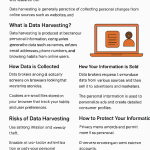- Introduction
- 🤖 What Makes AI in Healthcare So Promising?
- ⚖️ The Ethical Challenges of AI in Healthcare
- 1. Bias and Fairness in Algorithms
- 2. Patient Privacy and Data Security
- 3. Accountability and Liability
- 4. Transparency and Explainability
- 5. Trust Between Patients and Technology
- 6. Accessibility and Equity
- 🌐 Possible Solutions to Ethical AI Challenges
- ✅ Conclusion
Explore the ethical challenges of AI in healthcare, including bias, privacy, accountability, and trust. Learn how to balance innovation with responsibility.
Introduction
Artificial Intelligence (AI) is revolutionizing healthcare—helping doctors detect diseases earlier, personalizing treatment plans, and improving patient outcomes. From AI-powered diagnostics to robot-assisted surgeries, the potential is groundbreaking.
But with these opportunities come serious ethical challenges. Issues of bias, data privacy, accountability, transparency, and trust must be addressed if AI is to serve patients responsibly.
This article explores the key ethical dilemmas of AI in healthcare, why they matter, and what solutions are being developed.
🤖 What Makes AI in Healthcare So Promising?
Before diving into ethics, it’s worth noting why AI is so important in healthcare:
- Faster Diagnoses – AI tools like IBM Watson Health assist in analyzing medical data quickly.
- Predictive Analytics – AI can forecast disease risks before symptoms fully develop.
- Personalized Medicine – Tailored treatment plans based on genetic and lifestyle data.
- Operational Efficiency – Streamlining hospital workflows and reducing costs.
Yet, with great power comes great responsibility—and this is where ethical concerns arise.
⚖️ The Ethical Challenges of AI in Healthcare
1. Bias and Fairness in Algorithms
AI learns from data—but if that data reflects racial, gender, or socioeconomic biases, the results may be unfair. For instance, a study by Science (2019) found that an AI system underestimated the health needs of Black patients compared to white patients.
Keywords: AI bias in healthcare, fairness in AI, medical AI bias
👉 Read more on algorithmic bias.
2. Patient Privacy and Data Security
Healthcare data is extremely sensitive. Using AI requires massive amounts of patient records, genetic information, and even real-time monitoring data.
The ethical question: Who owns this data, and how can it be secured from breaches?
Keywords: healthcare data privacy, AI patient data, medical data security
👉 Learn about privacy frameworks at HIPAA Compliance.
3. Accountability and Liability
If an AI system misdiagnoses a patient or suggests the wrong treatment, who is legally responsible—the doctor, the hospital, or the AI developer?
This lack of clear accountability raises legal and ethical red flags.
Keywords: AI accountability in healthcare, medical liability AI, ethical responsibility AI
4. Transparency and Explainability
AI models, especially deep learning, are often called “black boxes” because their decision-making process is hard to explain.
But in healthcare, patients and doctors must understand how a diagnosis is made. Lack of transparency erodes trust and could lead to harmful decisions.
Keywords: explainable AI healthcare, AI transparency, black box AI medicine
5. Trust Between Patients and Technology
For patients, trust is everything. If people don’t feel comfortable with machines making decisions about their health, adoption will stall.
Ethical AI must balance human judgment with machine intelligence, ensuring patients feel supported, not replaced.
Keywords: patient trust in AI, AI healthcare ethics, human-AI collaboration
6. Accessibility and Equity
AI could widen the healthcare gap if only wealthy hospitals and nations can afford it. Ensuring equitable access is both a moral and global health issue.
Keywords: equitable AI healthcare, access to AI in medicine, healthcare inequality AI
🌐 Possible Solutions to Ethical AI Challenges
- Stricter Regulations – Laws like GDPR and HIPAA help govern data usage. More AI-specific frameworks are needed.
- Bias Audits – Regular reviews of AI systems to identify and correct bias.
- Explainable AI (XAI) – Building models that show how decisions are made.
- Human-in-the-Loop Systems – Keeping doctors central in decision-making, with AI as a support tool.
- Global Standards – Collaborations from WHO, FDA, and medical boards to create ethical AI guidelines.
👉 WHO Guidance on AI Ethics in Healthcare
✅ Conclusion
AI in healthcare has the potential to save millions of lives, reduce costs, and improve quality of care. But without addressing the ethical challenges of bias, privacy, accountability, and trust, we risk creating a system that benefits only a few while harming many.
The future lies in responsible AI adoption—where innovation is balanced with fairness, transparency, and patient-centered values.
As AI becomes an everyday tool in the operating room, clinic, and pharmacy, the ethical choices we make today will shape the future of healthcare tomorrow.










